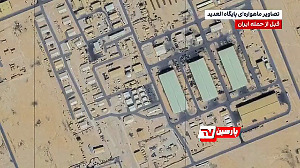The new directives will also come to the aid of those personnel from Central Reserve Police Force, Border Security Force, Central Industrial Security Force, Indo Tibetan Border Patrol, Special Security Bureau, National Security Guard and Assam Rifles who have 'acquired' colour blindness after being recruited in these central forces.
Colour blindness is either genetic or is 'acquired' over a period of time.
"The revised policy guidelines for eye vision have been charted after deliberations with all the forces and taking all aspects into count. The new norms will not only help reduce
litigation but will also help these forces retain their talented workforce who report weak eyesight," CISF Director (Medical) Dr Navin Ram told PTI.
Ram, who has worked on the subject for the last four years, recently got the endorsement on his research from Additional Director General (Medical) Dr B S Pandey, which states that with the advent of sophisticated weapons and vision correction surgeries like Lasik, a personnel with weak vision is not essentially hampered in proper discharge of duties.
Moreover, those personnel recruited for non-combat duties like law, education, animal transport, barber, washermen and sweeper do not require an absolutely flawless vision in rendering their duties.
'The matter has been examined in this ministry (home) and it has been felt that there cannot be one standard (vision) for all the force personnel who are recruited in various cadres. Furthermore, with the recent techniques and the advancement in the field of eye surgery, there are many methods now available for correction of distant vision like Lasik,' the new policy directives said.
The new visual standard directives for forces under the home ministry say that 'additionally, there has been a significant transformation in the job profile of the central armed police forces and the methods of border guarding as well as the way warfare is conducted.
'The armamentarium of sophisticated detection and combat gadgets has made redundant certain stringent visual standards hitherto considered essential,' it notes.
'Furthermore, due to these stringent standards, the CAPFs and ARs are losing out on recruiting candidates. This coupled with the lack of attraction towards the forces as a career option among the youth has led to a situation where there is a shortfall in the induction of officers, non-gazetted officers and personnel in other ranks,' it says.
The home ministry and forces' medical experts have also opined that "even if the officer does not have his spectacles on the battlefield, the range of assisting devices will help him carry out his tasks effectively provided he has good spectacle assisted acuity."
Hence, 'it is proposed that the un-aided visual acuity criteria be relaxed and best corrected visual acuity now be made the real determinant of a candidate's fitness to serve in the CAPFs and Assam Rifles,' the fresh directives said.
The directives also state that colour vision (colour identification) test should be done once at the time of recruitment and later on at the time of basic training.
'Thereafter, there is no necessity to examine it during annual medical examinations since it is mostly a congenital problem,' the new policy statement on visual standards said.






